The IPNDV was recognized more than 30 times by partners and non-partner countries during statements and in reports submitted to the 2018 Non-Proliferation Treaty Preparatory Committee Meeting (NPT PrepCom). Read more about the acknowledgements below:
Argentina’s statement to the Cluster I session on nuclear disarmament issues recognized the importance of verification for furthering non-proliferation and the welcomed the IPNDV’s work.
Australia’s national report explained its contributions to the Partnership as a working group co-chair and author of several working papers on transparency and inspections.
Belgium acknowledged its membership in IPNDV and its efforts to address the technical challenges regarding the verification of nuclear dismantlement in its Cluster I statement.
Brazil’s statement to the Cluster I session recognized its support for initiatives to advance nuclear disarmament verification and its participation in IPNDV.
Bulgaria, a non-IPNDV partner, welcomed the ongoing work of the IPNDV in its general debate statement. In a statement made to the Cluster I debate on nuclear disarmament, it recognized the importance of credible verification to establish confidence in nuclear disarmament, and it welcomed the ongoing work of the IPNDV.
The EU recognized the importance of addressing technical verification challenges that it looks forward to working with the Partnership on nuclear disarmament verification technical challenges in its general statement and Cluster I statement. In its working paper submitted to the PrepCom, the EU recognized the “excellent” results from Phase I of the IPNDV, including the key judgment from all partners.
Finland recognized the importance of creating a multilateral verification mechanism and credited its role in the IPNDV in its general debate statement.
Germany acknowledged the need for a robust and credible verification regime for concrete nuclear disarmament and its role in the IPNDV in its general debate statement. It recognized the Partnership’s role in bringing together nuclear and non-nuclear weapon states in its statement on Cluster I issues.
Hungary explained in its general debate statement that it looks forward to contributing to the IPNDV.
Italy’s statement to the Cluster I discussion acknowledged its support for the Partnership and that it values initiatives taken on nuclear disarmament verification to develop tools to build trust and confidence among nuclear and non-nuclear weapon states.
Japan acknowledged the need to continue working together in the UN Group of Governmental Experts on nuclear disarmament verification and the IPNDV in its Cluster I statement. In its national report, Japan explained its active participation in the Partnership, including that it hosted the third plenary meeting in 2016. It recognized the IPNDV as “a strong vehicle for practical and concrete measures to realize the goal of a world free of nuclear weapons.”
Latvia, a non-IPNDV partner, recognized that comprehensive verification is necessary for a world without nuclear weapons and that the IPNDV is “one of the few examples that have made a substantial contribution to this end,” in its general debate statement.
Non-Proliferation and Disarmament Initiative (NPDI) members acknowledged their support for the IPNDV in a statement made during the general debate.
Poland’s general debate statement acknowledged its role in working to establish a robust and credible verification regime of concrete nuclear disarmament measures, including its visible role in the Partnership.
South Korea announced that it will host the July 2018 IPNDV working group meeting in a statement made during the general debate. South Korea went on to acknowledge the “substantive progress” made by the Partnership among both nuclear and non-nuclear weapon states in its statement made during the Cluster I session.
Sweden’s general debate statement acknowledged the IPNDV for giving it a better understanding of the challenges involved with nuclear disarmament verification, and how these challenges can be overcome. In a statement made during Cluster II session on non-proliferation issues, Sweden recognized the importance of cooperative efforts, like the Partnership, in bringing together nuclear and non-nuclear weapon states to build trust and transparency.
Switzerland’s national report submitted to the PrepCom acknowledged its participation in the IPNDV.
The Netherlands recognized its continued contribution to the Partnership and its desire to see multilateral work on verification continue to take shape in its statement to the Cluster I session.
Turkey explained that it continues to participate in the IPNDV because it deems multilateral nuclear verification capabilities as necessary for the realization and maintenance of a world without nuclear weapons in its general debate statement and in a statement in the Cluster I session on nuclear disarmament.
The United Kingdom recognized its participation in the IPNDV in its general debate statement and its statement made during the Cluster I session.
The Vienna Group of Ten’s general debate statement recognized the IPNDV’s work in developing credible measures and building capacity for verifying nuclear disarmament as one of several positive steps being taken to strengthen the NPT. In its working paper submitted to the PrepCom the Vienna Group of Ten welcomed the Partnership’s ongoing multilateral work.



